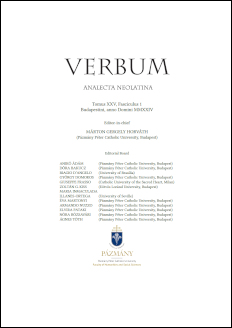Pubblicato 07-06-2024
Parole chiave
- Allende,
- Barthes,
- Duras,
- Nietzsche,
- Recalcati
Come citare
Copyright (c) 2024 Alberto Castelli

TQuesto lavoro è fornito con la licenza Creative Commons Attribuzione 4.0 Internazionale.
Abstract
The psychological tension between intimacy and distance, self-revelation, and estrangement accounts for much of the fascination and allure Marguerite Duras’ The Lover and Isabel Allende’s The Japanese Lover exert upon their readers. While both texts concern a knotty tangle of characters searching for love in the wreckage of the 20th Century, central to the narrative is the enigma of the absence. Love is a muted passion, a dialectical interplay between presence and absence, between creation and destruction, the “how much” the author reveals or conceals has to do with how much love can endure.
Riferimenti bibliografici
- Adler, Laure (1998): Marguerite Duras. Paris: Gallimard.
- Alphant, Marianne (1984): “Duras a l’atat sauvage” and interview with Marguerite Duras. Liberation.
- Barthes, Roland (1978): A Lover’s Discourse, trans. by Richard Howard. New York: Hill and Wang.
- Bishop, Michael (1998): The Poetry of Marguerite Duras. In: Bettina L. Knapp (ed.) Critical Essays on Marguerite Duras. New York: G. K. Hall. 178–194.
- Calder, John (1996): Obituary: Marguerite Duras (4 March 1996) http://www.independent.co.uk/news/people/obituary-marguerite-duras-1340299.html
- Castelli, Alberto (2019): The Disenchantment of History and the Tragic Consciousness of Chinese Postmodernity. CLCWeb: Comparative Literature and Culture 21.4. https://doi.org/10.7771/1481-4374.3085
- Cixous, Hé1éne & Michel Foucault (1976): A propos de Marguerite Duras. Cahiers Renault-Barrault 89: 8–22.
- Derrida, Jacques (1991): Spurs: Nietzsche’s Styles. In: Peggy Kamuf (ed.): A Derrida Reader. New York & London: Harvester.
- Du Bois, W. E. B. (1989): The Souls of Black Folk. New York: Penguin.
- Duras, Marguerite (1985): The Lover, trans. By Barbara Bray. New York: Pantheon.
- Feal, Rosemary G. & Yvette E. Miller (eds.) (2002): Isabel Allende Today: An Anthology of Essays. Pittsburgh, PA: Latin American Literary Review Press.
- Genova, Pamela A. (2003): Marguerite Duras and the Contingencies of Modern Autobiography: ‘L’Amant’. Modern Language Studies 33(1/2): 44–59. https://doi.org/10.2307/3195307
- Goffman, Erving (1959): The Presentation of Self in Everyday Life. Garden City, NY: Doubleday.
- Hart, Patricia (1989): Narrative Magic in the Fiction of Isabel Allende. Cranbury, NJ: Associated University Presses.
- Hellerstein, Nina S. (1991): ‘Image’ and Absence in Marguerite Duras’ ‘L’Amant.’ Modern Language Studies 21(2): 45–56. https://doi.org/10.2307/3194870
- Kristeva, Julia (1989): Black Sun: Depression and Melancholia, trans. by Leon S. Roudiez. New York: Columbia, UP.
- Kristeva, Julia & Katharine A. Jensen (1987): The Pain of Sorrow in the Modern World: The Works of Marguerite Duras. PMLA 102(2): 138–152. https://doi.org/10.2307/462543
- Lacan, Jacques (2015): Transference: the Seminar of Jacques Lacan Book VIII, trans. by B. Fink. Malden, MA: Polity.
- Ladimer, Bethany (1999): Colette, Beauvoir and Duras: Age and Women Writers. Gaines-ville: University Press of Florida.
- Leader, Darian (1997): Promises Lovers Make When It Gets Late, New York: Faber & Faber.
- Marini, Marcelle (1977): Territoires du feominin avec Marguerite Duras. Paris: Minuit, 1977. https://doi.org/10.3917/minui.marin.1977.01
- Marini, Marcelle (1985): Une femme sans aveu. L’Arc 98: 6–15.
- Martinoir, Francine de (1984): Rev. of L’Amant, by Marguerite Duras. La Nouvelle Revue Franqaise 383: 92–95.
- Morgan, Janice (1989): Fiction and Autobiography/Language and Silence: L’Amant by Duras. The French Review 63(2): 271–79. http://www.jstor.org/stable/394759
- Murphy, Carol (1982): Alienation and Absence in the Novels of Marguerite Duras. Lexington, Kentucky: French Forum.
- Nietzsche, Friedrich (1974): The Gay Science, trans. by Walter Kaufmann. New York: Vintage.
- Nietzsche, Friedrich (2006): Thus Spoke Zarathustra, trans. by Adrian del Caro. Cambridge: Cambridge UP.
- Nietzsche, Friedrich (1990): Beyond Good and Evil: Prelude to a Philosophy of the Future, trans. by R. J. Hollingdale. London: Penguin.
- Plato (2008): Symposium, trans. by M.C. Howatson. New York: Cambridge University Press.
- Recalcati, Massimo (2019): Mantieni il bacio. Milano: Feltrinelli.
- Ruddy, Karen (2006): The Ambivalences of colonial Desire in Marguerite Duras’s “The Lover”’. Feminist Review 82: 76–95. https://doi.org/10.1057/palgrave.fr.9400263
- Shabrang, Hoda & Karimi, Golnaz (2020): Post-Colonial Reading of Isabel Allende’s The Japanese Lover. International Journal of Linguistics, Literature and Translation.
- Stoler, Ann Laura (1989): Making Empire Respectable: The Politics of Race and Sexual Morality in 20th Century Colonial Cultures. American Ethnologist 16(4): 634–660. https://doi.org/10.1525/ae.1989.16.4.02a00030
- Sundquist, Eric J. (1993): To Wake the Nations: Race in the Making of American Literature. Cambridge: Harvard University Press.
- Tateichi, John (1984): And Justice for All: An Oral History of the Japanese American Detention Camps. New York: Random House.
- Taylor, Sandra C. (1993): Jewel of the Desert: Japanese American Internment at Topaz. Berkeley, CA: University of California Press.
- Thompson, Zoë Brigley (2016): Beyond Symbolic Rape: The Insidious Trauma of Conquest in Marguerite Duras’s The Lover and Eileen Chang’s ‘Lust, Caution.’ Feminist Formations. 28(3): 1–26. https://doi.org/10.1353/ff.2016.0041
- Vircondelet, Alain (1994): Duras: A biography, trans. by Thomas Buckley. Normal, IL: Dalkey Archive Press.
- Williams, James & Janet Sayers (2000): Revisioning Duras: Film, Race, Sex. Liverpool: Liverpool University Press. https://doi.org/10.5949/UPO9781846313943
- Yeager, J. A. (2001): Colonialism and Power in Marguerite Duras’s The Lover. In: J. B. Winston & L. C. P. Ollier (eds.) Of Vietnam. New York: Palgrave Macmillan.


